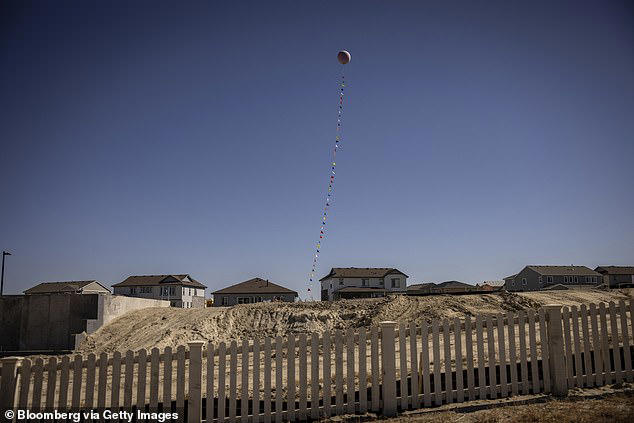The surge in property taxes in Colorado has become a pressing issue for many long-time residents, sparking financial strain and uncertainty as they grapple with unprecedented hikes in their tax bills. Marleen Gamble, an 84-year-old retired X-ray technician, exemplifies the challenges faced by homeowners, having been forced to part with cherished possessions, including her prized jewelry, in a desperate attempt to meet her tax obligations. However, Gamble’s situation is just one among many, with some property owners experiencing staggering increases of up to 40 percent in their tax payments.
At the heart of this tax crisis lies the influx of wealthy Americans who sought refuge in Colorado during the pandemic, drawn by the allure of the scenic Rocky Mountains and the flexibility of remote work arrangements. This influx, coupled with the state’s expanding population, has placed significant strain on local and state governments, which heavily rely on property taxes to fund essential services such as schools, infrastructure, and public safety. Despite efforts by lawmakers to address the crisis, providing relief to struggling homeowners has proven challenging, as the surge in property values and the cost of public services outpaces residents’ income growth.
Property taxes in Colorado are calculated based on a complex formula that considers various factors, including the property’s assessed value, the statewide tax rate, and local mill levy rates. The sharp increase in property values, compounded by a failure to adjust mill levy rates and the repeal of the Gallagher Amendment, has resulted in astronomical tax bills for homeowners across the state. In areas like Douglas County, where one in five homeowners faces a 40 percent or higher spike in property taxes, the impact is particularly severe.
The consequences of soaring property taxes extend beyond financial hardship, exacerbating housing affordability challenges and widening economic disparities. Brittany Hailey, a property manager in Carbondale, highlights the ripple effects of the crisis, noting that less affluent families are being priced out of their communities as wealthy individuals drive up property values. Moreover, proposed changes to tax laws, such as classifying rental properties as commercial properties, threaten to further burden homeowners like Hailey, who rely on rental income to offset their expenses.
In response to mounting pressure from homeowners and advocacy groups, Colorado Governor Jared Polis has convened a state task force to explore potential solutions to the crisis. Recommendations include measures to cap property tax increases, separate school funding from other funding sources, and reduce tax rates for commercial properties. However, addressing the underlying issues requires a comprehensive overhaul of the state’s tax structure and a concerted effort to prioritize the needs of homeowners and communities grappling with the repercussions of surging property taxes.
